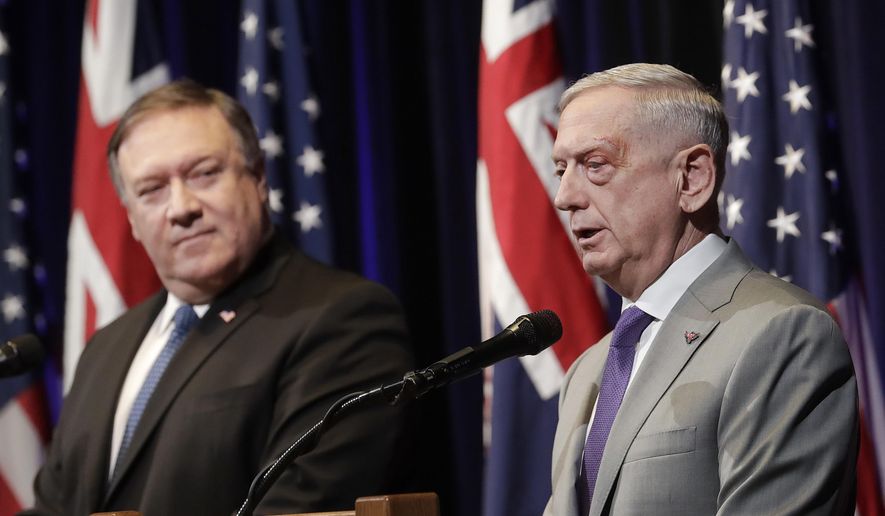Frustration among journalists covering the Pentagon reached a boiling point Thursday after yet another media briefing was canceled at the last minute, and veteran reporters say the climate for reporters inside the Defense Department continues to deteriorate.
In a break with past practice, Pentagon spokesperson Dana White has not held an on-camera question-and-answer session with reporters since May.
Defense Secretary James N. Mattis has not appeared in the Pentagon briefing room since April, though he did hold an off-camera gaggle with reporters last month.
Defense Department officials downplayed their worsening relationship with reporters Thursday, arguing that it’s simply not a priority to keep journalists happy.
“We have an obligation to the American people to get the facts right the first time and will continue investing our time in journalists who are equally committed to getting it right,” Ms. White told Politico in a statement. “We engage with reporters regularly but deliberately. Our metric of success is whether the American public is informed with the facts, not whether reporters are always satisfied.”
Veteran Pentagon reporters say that approach should worry Americans who rely on the press for information about what happens inside the Defense Department.
“Troubling to hear [Ms. White] assert that the government will decide when the public is adequately informed of their military, not the press,” Kevin Baron, a longtime defense reporter and the founding executive editor of Defense One, tweeted Thursday. “Every SecDef or Joint Chf chairman has said the opposite, praised the Pentagon press corps for informing them” of issues inside the Defense Department.
Some journalists say the systemic issue begins with Mr. Mattis, who rarely gives interviews and seems to be far less forthcoming with basic information about the military than his recent predecessors.
“He does not do interviews, and has only appeared in front of the Pentagon briefing room cameras a handful of times,” CNN Pentagon correspondent Barbara Starr wrote Wednesday.
“To keep a military low profile, Mattis had clamped down on releasing basic military information that has been publicly available for years. For example, the Pentagon no longer publishes a regular report on troop levels in Iraq, Syria or Afghanistan,” she continued. “Mattis has not yet commented in detail on Trump’s Helsinki meeting with Vladimir Putin — even as he, as secretary, has taken a publicly hard line on Russia. He also has not commented on Trump’s latest threats against Iran, even as Iran has threatened to shut down Gulf oil shipping.”
The Pentagon does make military officials regularly available to the press but typically limits the discussions to very specific topics.
Last week, for example, the head of U.S. Central Command took questions from reporters about the campaign to defeat the Islamic State.
Earlier this month, top Army officials answered questions about the new Army Futures Command locating in Austin. Those officials answered questions only about the Futures Command, refusing to comment on the recent death of a U.S. soldier in Afghanistan and other military issues.
• Ben Wolfgang can be reached at bwolfgang@washingtontimes.com.




Please read our comment policy before commenting.